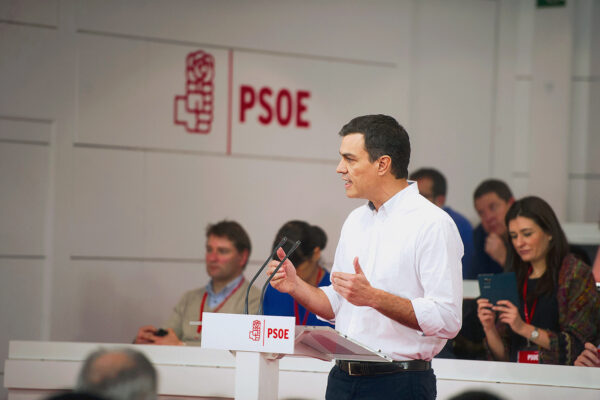
If Spanish prime minister Pedro Sánchez was hoping that taking a harder line on the Catalan independence crisis would give his Socialist Party a boost in the next election, a look at the polls must give him second thoughts.
Since the Supreme Court convicted nine Catalan separatist leaders of sedition against the Spanish state for organizing an unsanctioned independence referendum in 2017, support for the Socialists has fallen from 28-29 to 24-25 percent.
The conservative People’s Party is up, from around 20 to 22-23 percent in the last month. The far-right Vox, which got 10 percent in the last election, is up to 13-14 percent.
Elections are due on November 10.
No discussion
Sánchez, who previously argued for dialogue with the separatist-controlled Catalan government and even hinted at the possibility of constitutional reform to give the region more power, now argues there can be no discussion until Catalan leaders condemn the violence that accompanied demonstrations against the Supreme Court verdict.
No matter that they have.
Sánchez refused to pick up the phone when Catalan president Quim Torra called him to discuss the unrest. When he visited Barcelona, Sánchez met with police, but not regional government leaders.
Unconvincing
This sudden intransigence is unconvincing.
On the left, Podemos — still Sánchez’ most likely partner in the next Congress — has urged him to pursue dialogue.
On the right, parties are always willing to go further. The center-right Citizens and the conservative People’s Party argue for the indefinite suspension of Catalan home rule. Vox argues for the abolition of Spain’s entire system of devolved regional governments.
That’s a message that resonates in other parts of Spain. The three right-wing parties poll at a combined 40-45 percent. Meanwhile, Podemos is stuck at 12 percent, down from 14 percent in the last election.
Sánchez called early elections in a bid to strengthen his plurality. He may end up with fewer seats and — ironically — dependent on not only Podemos but the Catalan independence parties, who are projected to get 6-7 percent of the national vote.
